
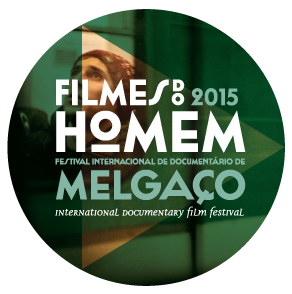
Participants
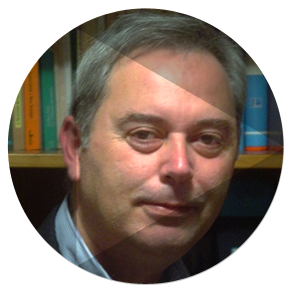
Albertino Gonçalves
Albertino has a master’s degree in Sociology from the University of Paris V-Sorbonne (1981) and a doctorate in Sociology from Universidade do Minho (1994), where he aggregated in the Sociology disciplinary group (2005). He has been teaching, since 1982, subjects in the field of social sciences methodology and cultural sociology, lifestyle and the arts. Coordinator of the post-graduation courses at Institute of Social Sciences, a member of the founding committee of Casa Museu of Monção and researcher at the Studies Center Communication and Society.
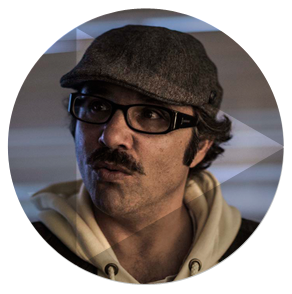
Alexandre Martins
Alexandre Martins is a cinema graduate in script writing from Escola Superior de Teatro e Cinema de Lisboa. He is presently working as an actor and teacher in the field of audiovisual.
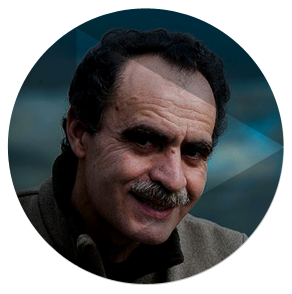
Álvaro Domingues
Álvaro Domingues (Melgaço, 1959) is a geographer, PhD in Human Geography from Faculdade de Letras, Universidade do Porto in 1994. Since 1999 that he’s been teaching the integrated master's degree and the doctorate program. He is also a member of the Scientific Council. As a researcher at the Architecture and Urban Studies Center of FAUP, he has developed a regular activity of research and publication within projects with the Calouste Gulbenkian Foundation, the Science and Technology Foundation, the CCDR-N, CCDR-C, with the Xunta of Galicia, with the Escola Técnica Superior de Arquitectura of Coruña, with the Erasmus University of Rotterdam-EURICUR, with the Club Ville Aménagement - Paris; with the CCCB, Barcelona, with
the Universidade Técnica de Barcelona-Architecture, with the Universidade of Granada - Planning and Urbanism, with the Federal Universities of São Paulo and Rio de Janeiro-Brazil, with the Universities of Minho and Coimbra, with the cities of Guimarães and Porto, with the Order of Architects, with the Serralves Foundation and the Youth Foundation, among others.
In CEAU-FAUP, his activity focuses on Human Geography, Landscape, Urban Planning and Urban Policy, both in terms of research and external consulting and training.
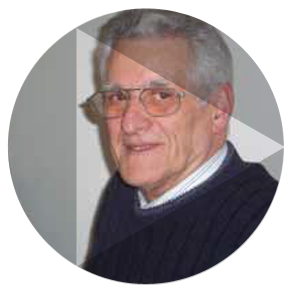
Carlos da Fonseca
Carlos da Fonseca was born in Lagos in 1936, where he studied at the technical school. He went to France in the early sixties, working in factories and construction. In 1964 he departs with his family to Algeria in search of better living and working conditions. Back in France in 1968, he takes refuge at CIMADE, in Massy, an organization for refugees. In 1975 he began working in the Emigration Service. He worked with Portuguese emigrants supporting them in obtaining documents, family reunification, assisting them in contacting with the French administration, clarifying them about the then current legislation and tutoring literacy courses.
He followed closely the struggle of his wife, Laurete da Fonseca, who led a protest against a process of resettlement of migrants from the “bidonville” of Massy, which earned him an expulsion order from the French Ministry of the Interior.
In 2006 he retired from the job he held in the Social and Cultural Service of the Portuguese Embassy in Paris.
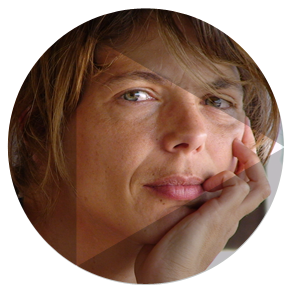
Catarina Alves Costa
Holds a PHD in Anthropology from the University Lisbon and an MA in Visual Anthropology from the Granada Centre for Visual Anthropology, Manchester. Teaches Visual Culture and Anthropology in Nova University, Portugal. Producer and director at the company Laranja Azul. Collaborates with different post graduation studies, in Barcelona, Spain, São Paulo University, Brazil and Mexico City. She was as a jury in different ethnographic film festivals. Directed films since 1992, won various international prizes and published different works on documentary and ethnographic films. Some of her films are distributed by Documentary Educational Resourses.
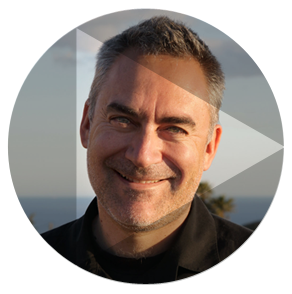
David Muñoz
He writes, directs and produces documentary and fiction films, with more than 100 awards and 500 selections in film festivals. Winner of Goya Award to Best Short Documentary for FLOWERS OF RWANDA. His film THE INFINITE JEST was a Jury Award for Best Short Documentary at the Aljazeera Documentary Film Festival. His film ANOTHER NIGHT ON EARTH won the Film Critics FIPRESCI Award at DOK Leipzig, the NHK Presidential Award, also the Best Feature Documentary Award at Guanajuato International Film Festival. His short fiction film ABOUT NDUGU was a world premiere at the 63 Berlinale and Best Andalusian
Short Film in Almeria International Film Festival. HIDE & SEEK was a World premiere at the 65 Berlinale Shorts official competition and a Jury Award, Biznaga de Plata, at the 18th Festival de Cine de Malaga.
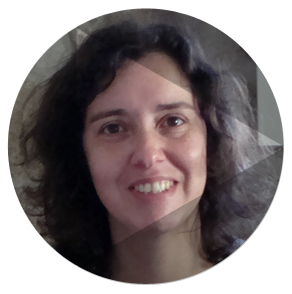
Graça Gomes
Graça has been working in animation film in the fields of advertising and animation short-films since 1988, collaborating with a number of different studios and production companies (Opticalprint, Pixel e Tintas, Animais, Ao Romper da Bela Aurora, Cão Amarelo, Animanostra, Alfândega Filmes and Filmógrafo). Director of several animated educational films for television shows Rua Sésamo and Jardim da Celeste. Between 1993 and 2001, she’s attended a Franco-Portuguese teaching professional internship in design and animation volume and some “Cartoon Masters” organized by the European association of Animation. In 2012, she finished making and directing the animated cinema series “Brincarolas”, her own project funded by the ICA, and today is a collaborator with CCV, as a teacher and director of activities in animation cinema for the project CINEMA FOR SCHOOLS.
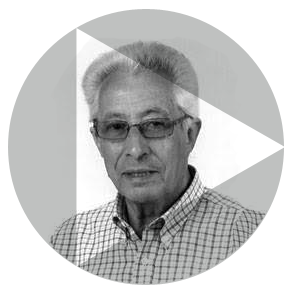
Henrique Espírito Santo
Henrique Espirito Santo was born in Queluz on 18 November, 1931. His curriculum accounts for about 70 films produced. His influence in Portuguese cinema is striking, particularly during the period of the new wave of Portuguese cinema, which would coincide with the appearance of several directors with whom he has worked.
He has been working as a teacher in the field of Film Production at several institutions in Portugal, Angola and Mozambique.
As a producer, Henrique has a vast curriculum from which we can highlight the following films:
"O Recado" and "5 dias e 5 noites" by José Fonseca e Costa, "A Promessa" by António Macedo; "Meus Amigos" by António da Cunha Telles; "Benilde ou a Virgem-Mãe" and "Amor de Perdição" by Manoel de Oliveira; "Veredas" by João César Monteiro; "A Fuga" and "Cerromaior" by Luís Filipe Rocha; "O Bobo" by José Álvaro Morais; "Passagem ou a Meio Caminho" by Jorge Silva Melo; "Das Autogramm" by Peter Lilienthal; "Buster’s Bedroom" by Rebeca Horn; "Hors Saison" by Daniel Schmid; "Até Amanhã, Mário " and "Comédia Infantil" by Solveig Nordlund; "Olhos da Ásia" de João Mário Grilo; "O Clandestino" by José Laplaine
"Golpe de Asa" by António Borges Correia; "E assim nasceu a Ilha de Timor" by José Barahona
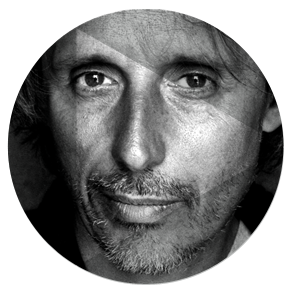
Jean-Loïc Portron
In 1981, took part in the creation of Ateliers Varan.
Between 1985 and 1988, within the Ateliers and with the support of the Foreign Office, he has taught and formed young south African filmmakers in Documentary Film at the University of Witwatersrand, Johannesburg.
In 1998, with André Van In, he has oriented said filmmakers in the directing of a collective film: Chroniques sud-africaines (110 min., JBA production, ZDF, Arte).
After 1991, he collaborated mainly with the ARTE channel, for which he has directed a series of documentaries:
- 1991-2000: Paysages (20 X 26 min. JBA Production, INA, Arte)
- 2000-2010: Les Foyers de création (7 X 52 min. 13 Production, Arte)
- 2005-2010: Les Arts du mythe (5 X 26 min. Program33, Arte)
- 2011 : L’Energumène (77 min. JBA Production, Arte)
- 2013 : Braddock America (103 min. Program33, avec Gabriella Kessler) Festival de Cannes 2013, Festivals de Thessalonique, Three-Rivers (Pittsburgh), La Rochelle, Cleveland, Alger, etc.
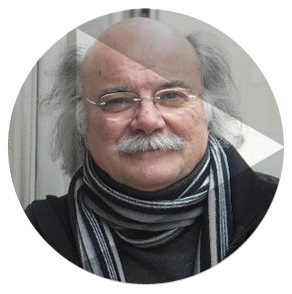
Jorge Campos
Jorge Campos has a doctorate in Communication Sciences from the University of Santiago de Compostela and is a film maker, journalist, cultural programmer and Assistant Professor at Instituto Politécnico do Porto. In charge of the scientific area of Visual Studies for the Artes da Imagem Department (DAI), he teaches courses in Cinema and is responsible for the specialization in Documentary Film within the Master's degree in Audiovisual Communication at Escola Superior de Música, Artes e Espectáculo (ESMAE). Programmer of Imagens do Real Imaginado (IRI), a cycle of Photography and Documentary Film at ESMAE. He was responsible for the field in Cinema, Audiovisual and Multimedia at Porto 2001 - European Capital of Culture.
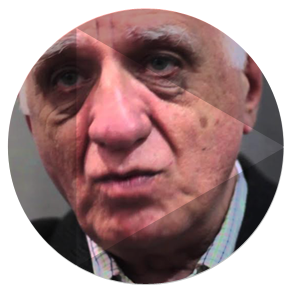
Jose Carlos Sebe Bom Meihy
José graduated in History at the University of Taubaté, SP (1969) and has a doctorate in Social History from the University of São Paulo, USP (1975). Retired professor of the Department of History, he coordinates the NEHO/USP (Centre of Oral History Studies), linked to DIVERSITAS/USP. He is currently a professor at the post-Graduate Program of UNIGRANRIO, in Duque de Caxias, RJ and a research developer on “Dreamlike Manifestations of migrants to the Baixada Fluminense region”. He has experience in the field of History, with an emphasis in oral history, acting mainly on the following topics: population displacement of vulnerable groups, international prostitution, life stories of people at risk and identity negotiation. Having written and published on oral history, in addition to thematic approaches, he dedicates himself to theoretical reflections and has books on the subject. Also acts as a soap opera consultant for television from the perspective of Public History
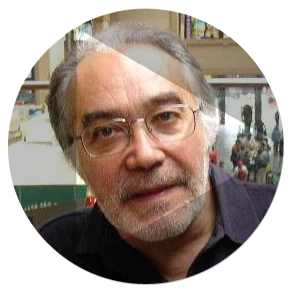
José da Silva Ribeiro
José has a doctorate in Social Sciences – Anthropology. Attended higher education studies in Cinema and Video at Escola Superior Artística do Porto. Professor of Anthropology, Visual Anthropology and Media and Cultural Mediations at Universidade Aberta. Researcher at the Centre of Studies for Migrations and Intercultural Relations at Universidade Aberta where he is responsible for the Research Group Media and Cultural Mediations. He has done field work in Cape Verde and the urban peripheries of Lisbon and Porto, in Brazil, Cuba and Argentina. Coordinator at the International Film Conference of Viana do Castelo, of the International Seminar Imagens da Cultura/Cultura das Imagens. Coordinator of Imagens da Cultura/Cultura das Imagens network. Collaborator with DIVERSITAS-USP. Visiting Professor at European and Latin American Universities.
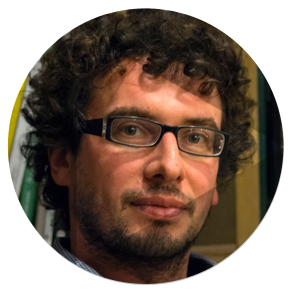
José Manuel Sande
José Manuel Sande is programmer, scriptwriter, historian and film critic. He is in charge of programing the activities of the Centro Galego de Artes da Imaxe (CGAI)-Filmoteca de Galicia and is also a member of the Spanish Film Historian Association (AEHC).
He writes in different specialized magazines like Caimán. Cuadernos de Cine, participates in radio programs (SER) and is one of the founders of the internet TV channel GalizaAnoCero and the magazine Luzes. He is also one of the authors behind the blog Acto de Primavera and appears in various publications and collective books.
The scriptwriter and associate producer of the film Arraianos (2012), from Eloy Enciso, has been guest professor for the Pompeu Fabra University.
He is working on two investigative projects about the Spanish postwar cinema. He’s also been jury for festivals in Las Palmas, Miradas –Doc, Gijón or Play-Doc (Tui) and Filminho.
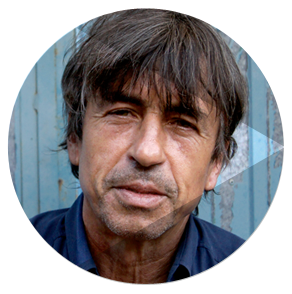
José Vieira
José Vieira, film director of Portuguese origin, lives and works between Portugal and France. He has directed around thirty documentaries since 1985, namely for France2, France3, La Cinquième and Arte. His body of work, dedicated mainly to the issue of emigration, has been shown in various international film festivals. José Vieira has given visibility to the story of one million Portuguese people, who left the country in the sixties, most clandestinely - "on the hop", as it was called - in what was the largest human migration in twentieth century Europe.
Born in Oliveira de Frades, he left for France in 1965, at the age of seven. His personal experience as a migrant and the many stories heard and related from other emigrants inspired his latter-day work as a director. Starting from individual stories, he traced the portrait of emigration in France, recovering an entire collective memory in the process. His documentaries are essential to understand the history of thousands of Portuguese people who sought a better life during the Estado Novo dictatorship.
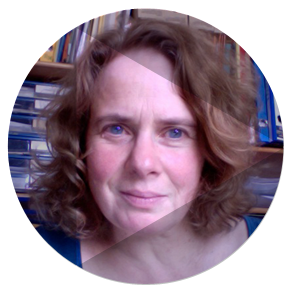
Leonor Areal
Leonor Areal (Lisbon, 1961) bought her first photo camera at the age of 8. After taking literature studies, she converted herself into video. She has directed more than 15 films, most of them in the documentary field. With ‘Drama at School’ (1993) she won a prize and a scholarship to New York Film Academy. ‘Happy Generation’ (2000) was shown at Odisea channel. ‘Ilusiad – My life could be a movie’ (2002) was broadcasted by RTP. ‘Outlaw’ won a special mention for the distribution award at Doclisboa 2006, had a nomination for the Nuovi Sguardi award at Torino GLBT Film Festival 2008, and was released in dvd in 2009.
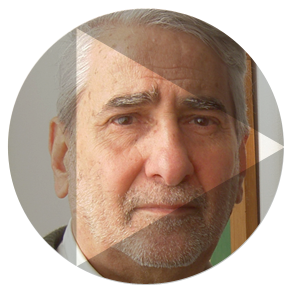
Luís Cília
Luís was born in Huambo (Angola), in 1943. He came to Portugal in 1959 to pursue his studies. In 1962 he met the poet Daniel Filipe who encouraged him to put music to poetry. His first experiences in the field ("Meu país", "O menino negro não entrou na roda", etc.) date from that year and were later included in his first album recorded in France, for the Chant du Monde record label. He left for Paris in April 1964, where he lived until 1974. In France, he studied classical guitar with Antonio Membrado and composition with Michel Puig. Between 1964 and 1974, he has given concerts in almost every country in Europe. After his return to Portugal, he continued to record albums as a composer and interpreter and performing recitals. As a performer, he recorded eighteen albums, some of which dedicated exclusively to poets such as Eugénio de Andrade ("O Peso da Sombra"), Jorge de Sena ("Sinais de Sena") or David Mourão Ferreira ("Penumbra"). In recent years he has dedicated himself solely to composition, particularly for Theater, Ballet and Cinema.
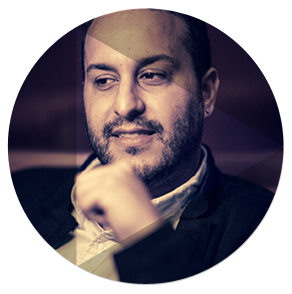
Mahdi Fleifel
Mahdi Fleifel is a Palestinian filmmaker and visual artist based in London. He was born in Dubai, raised in the Ain El-Helweh refugee camp in Lebanon and later in the suburbs of Elsinore, Denmark. He graduated from the British National Film and Television School in 2009. His recently completed feature documentary, ‘A World Not Ours’, is currently touring the festival circuit and has already picked up multiple awards.
His next feature, ‘Men In The Sun’ is based on the themes and characters encountered while making Xenos, and is currently being developed as part of the New Danish Screen scheme.
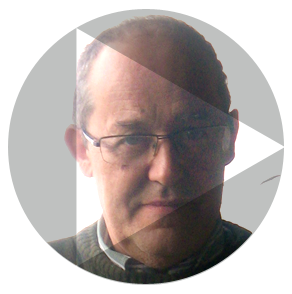
Manolo González Álvarez
Manuel has a degree in Psychology from Universidade Complutense, Madrid 1977. Former Director at I.F.P. Allariz (1979-83), where he carried out the first experiments in school video in Galicia. He worked as a television producer and director of programs for TVG during the 80’s.
Participated in the investigation and cataloging of the audiovisual memory of Galician
emigration. Among other titles, he’s published the book: Documentos para la Historia do cine en Galicia (1970-1990). Creator and director of School of Image and Sound in La Coruña (1990-1998). Teacher at the Master’s degree in audiovisual production and management from Universidade de Coruña (1998-2015). He has participated in numerous events, festivals and audiovisual showings, as well as conferences and seminars in national and international forums about the relations between cinema and education. Honour Prize Fernando Rey at the Agapi awards 1999, for his “contribution to the development of the Galician audiovisual industry” and Fernando Rey from Academia Galega do Audiovisual (2014). Associate Professor at the faculty of Audiovisual Communication at Vigo University (2005-2007) and Director at Axencia Audiovisual Galega of the Council of Culture and Sport of Xunta de Galicia (2005-2009).
Nowadays he teaches History classes at IES “Concepción Arenal” in Ferrol.
He also manages the video channel of Historia de España Cliphistoria and collaborates as adviser and contents creator in the web project cooperation “Fálame de San Sadurniño”.
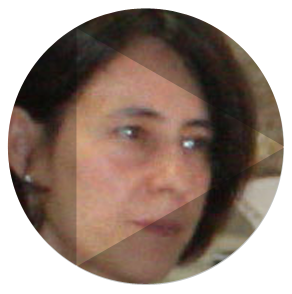
Manuela Penafria
Manuela has a doctorate from the University of Beira Interior and is a professor at the University of Beira Interior / Dept. of Communication and Arts, Bachelor's Degree course in Cinema and researcher at Labcom (www.labcom.ubi.pt). Founding partner of the Working Group in Film Studies SOPCOM – Portuguese Association of Communication Sciences. Among its publications, stands out the online book: The documentary paradigm: Antonio Campos, director, edited by LivrosLabcom, 2009. Co-editor of the DOC Online magazine (www.doc.ubi.pt).
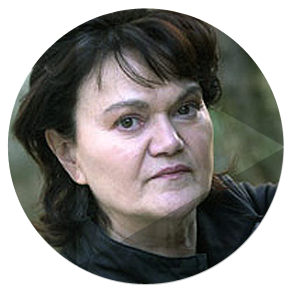
Margarita Ledo Andión
Margarita is a Professor of audiovisual communication at the Universidade de Santiago de Compostela, USC, and director of the "Audiovisual Studies" group in the same University. Principal investigator of the project "Cinema, Diversity and Networks" from the National I+D Plan (2008-2011) and I+D+ i of INCITE "Lusofonia: interactivity and interculturalism" program. Her line of work in the fields of geo-linguistic and multiculturalism led her to lead several European studies like the one that originated the book, co-authored with Jacques Guyot and Roland Michon, Production télévisée et identité culturelle, PUR, Rennes, 2000. Co-editor, with Professor Tapio Varis, of Galicia-Finland: mindsets, CCG, Santiago de Compostela, 2002. Her studies about the politics of representation in photographic and film documentary image are reflected in works such as Cine de Fotógrafos, Gustavo Gili, Barcelona, 2005, "Fundació Espais d'Art Comtemporani" Award; Del Cine Ojo a Dogma 95, Paidós, Barcelona, 2004; Photography Documentary, Cátedra, Madrid, 1998, and Contemporary Photographic Documentary: From innocence to lucidity, Xerais, Vigo, 1995. Chairs the Galician Association of Researchers in Communication, AGACOM. Senior Vice President of the Spanish Association of Communication Research, AE-IC and sits on the board at the Lusophone Federation of Sciences of Communication, LUSOCOM and the Iberoamerican Association of Sciences of Communication, ASSIBERCOM.
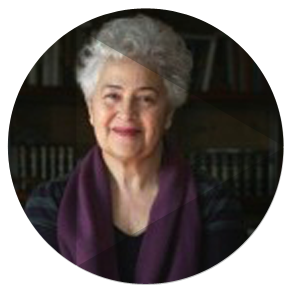
Maria Beatriz Rocha-Trindade
Maria was born in Faro, has a master’s degree in Anthropological and Ethnological Sciences from ISCSP/Universidade Técnica de Lisboa, a doctorate in Sociology from the Faculté des Lettres et Sciences Humaines de Paris - Université René Descartes - Paris V (Sorbonne) and is Aggregated in Sociology from the Universidade Nova de Lisboa (FCSH).
Professor at Universidade Aberta, where she founded (1994) the Migration Studies Center and Intercultural / CEMRI Relations, I&D Unit at the Foundation for Science and Technology from the Ministry of Education and Science. Scientific Advisor to the Museum of Emigration and Communities of Fafe. Holder of the Ordre National du Mérite of France, with the degree of Chevalier, the Medal of Merit of the City of Fafe and the Grand Cross of the Order of Public Instruction, Portugal.
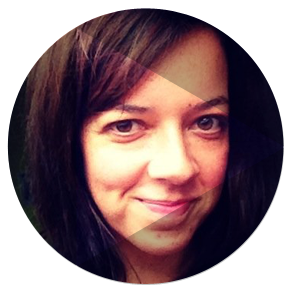
María Yáñez
Digital media maker & researcher
Maria is an all-terrain explorer of the paths uniting audiovisual and the internet, from digital narratives to promotion and online distribution. She’s a partner at digital communication company A Navalla Suíza and co-editor at EMBED.at, a working collective dealing around contemporary audiovisual and open culture.
She works independently as a researcher and teacher of digital narratives, also designing content and communication strategies for a number of different projects related with online audiovisual. Among the most recent examples are the activities coordination at the festival of digital contents Carballo Interplay, a start-up from the Screenly platform for the distribution of films in low demand rooms and the coordination of the audiovisual archive Doc Next Network Media Collection.
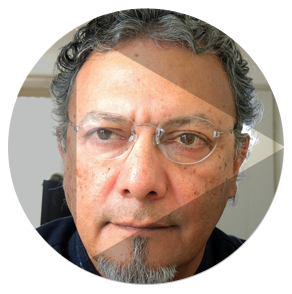
Mariano Báez Landa
Mariano is a Mexican Anthropologist, Universidad Veracruzana (1983); master’s degree in social anthropology from CIESAS (1993) and a doctorate in social sciences from Universidade Estadual de Campinas SP, Brazil (2000). Senior Professor and researcher at CIESAS-Gulf, coordinator of Workshop Anthropological Perspectives (2001). Main lines of work: indigenism, visual anthropology, intercultural communication, intellectual itineraries and professional career paths of Mexican Anthropology. Filmography: Corazón Indio/Indian Heart. Indigenous youth at the Universidad Veracruzana (2003) Ba'ax ka Wa'alik young Mayas of Yucatan (2006) Solomon Nahmad, Malinowski Award 2011, Gonzalo Aguirre Beltran, Utopia and Revolution (2010).
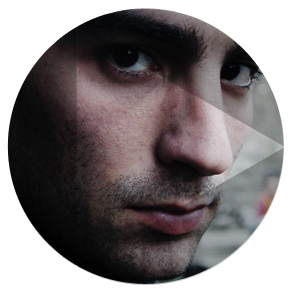
Maurilio Mangano
Maurilio Mangano, Palermo Class of 1980. In 2002, he began working in film as an Assistant Director as well as Production Assistant, before finally specializing as a Casting Director through his many Street Castings for various cinematographic, television, and documentary productions such as RAIFICTION, RAIEDUCATIONAL, Cattleya, Wildside, Magnolia Fiction, Demetra Produzioni, Vivo Film and Fandango. In 2010 he signed his first direction with the short film “What’s the difference?”
In 2014, he’s written and directed his first film, INTERNAT, a documentary about the sons of the Georgian-Abkhazian war of 1992-1993. He also works as a photographer and reporter, collaborating with VICE Magazine and the Observatory of Balkans and Caucasus. He lives in Tbilisi.
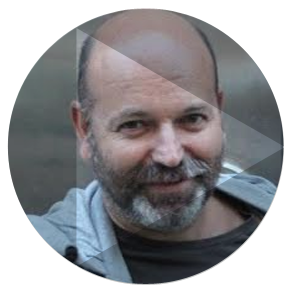
Pedro Sena Nunes
Pedro studied Cinema and attended courses in writing, photography, video and theater at several european schools. Cofounder of Companhia Teatro Meridional. He is a film director - documentaries, fiction, advertising and experimental. Consultant and coordinator on a number of cultural projects. Codirector of InArte, InShadow and Fance&Design Festivals. Collaborator with european projects Fragile, Unlimited, European Video Dance Heritage and Encontros de Viana. Lecturer in film directing and transdisciplinary narratives at ETIC, ESMAE, IPA, SOU and EscreverEscrever. Dedicated to the field of teaching since 1994. Jury member at various festivals. Has several awards in photography, video and cinema.
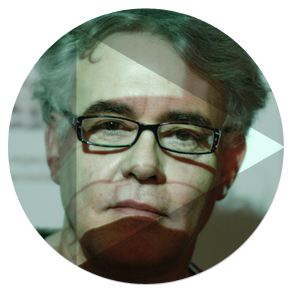
Sérgio Bairon
Sérgio is a Professor of Communication Sciences at the School of Communications and Arts - USP. Doctorate in Sciences from the Faculty of Philosophy, Arts and Human Sciences - USP. Post doctorate in Communication and Semiotics from PUC-SP and the Freie Universität Berlin. Professor of Audiovisual Production (Advertising - ECA-USP) and Knowledge Production in Hypermedia (Post-graduate in Social Communication (ECA-USP). Visiting Professor at Stanford University 2013 - 2014. For 15 years he was a professor and tutor of the doctorate in post-graduation in Communication and Semiotics at PUC / SP. Head of CEDIPP / USP (Digital Communication and Shared Research Center) certified by CNPq. Author of the books Multimedia (Global ed.), Interdisciplinary - hypermedia, education and cultural history (Futura ed.), Theories of Communication and Marketing (Futura ed.), Hypermedia, Psychoanalysis and History of Culture (EDUCS ed.), sonic Textures: audio hypermedia (Hacker ed.), among others. Consultant in the field of Semiotics Analysis, Interdisciplinary.
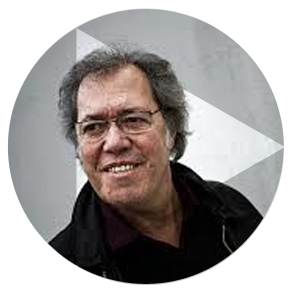
Sérgio Godinho
Sérgio Godinho was born in 1945 in Porto. He left Portugal at the age of twenty, refusing that way to enlist in the colonial war. First destination: Switzerland, where he studied psychology for two years. Later he moved to France and lived through the May of 68 protests in Paris. The following year he joins the French production of the musical "Hair", where he remains for two years. Still in Paris, he consorts with other Portuguese musicians such as Louis Cília and José Mário Branco. His first album, Os Sobreviventes, comes out in 1971, followed by twenty-seven more to the present day. A polyphonic voice, Sérgio Godinho often took his writing to other areas. Movie scripts (Kilas, o Mau da Fita), plays (Eu Tu Ele Nós Vós Eles), TV series, children and youth stories (O Pequeno Livro dos Medos), poetry (O Sangue Por Um Fio), chronicles (Caríssimas quarenta Canções), among several examples.
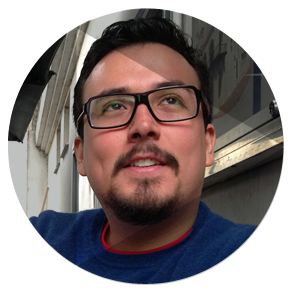
Sergio García Locatelli
Sergio García Locatelli graduated from the Universidad de Lima with a degree in Communications. Received a diploma from the Instituto del Cine de Madrid for direction and screenplay writing in documentary film. Completed a Master of the Arts in Cinematographic screenplay writing from the Escuela de Escritores de Madrid.
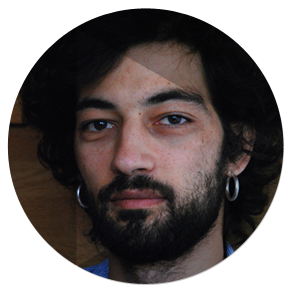
Soufiane Adel
Soufiane Adel was born in Algeria in 1981. He arrived in France at the age of 8. He discovers cinema while studying industrial design at the ENSCI School. It was not by chance: he spent his childhood watching Jean-Claude Van Damme and the New Hollywood movies. He has his first meeting with Italian neorealism and experimental cinema at the age of 20, and so begins his cinephilia, self taught, random and compulsive. In 2004, he decides to film his father, and asks him to play a scene they have already experienced together. This will be his fist short movie: “Nuits Closes”. “La Cassette”, then “Kamel s’est suicide six fois, son père est mort” followed afterwards. Since 2009, he codirects his movies with Angela Terrail, with whom he has worked ever since “La cassette”. They directed “Sur la tête de Bertha Boxcar” and are currently preparing a feature length film, a contemporary adaptation of Jack London’s “Martin Eden”.
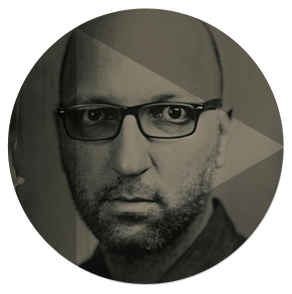
Tiago Hespanha
Graduated in architecture in 2004 and holds a Master on Creative Documentary at Pompeu Fabra University, Barcelona, Spain, in 2012. Is partner of the production company TERRATREME. Lectures at the master DOCNOMADS - European Documentary Master Course. Member of LES ATELIERS VARAN, since 2014.
Directed the films: Industrial Revolution, co-directed with Frederico Lobo (2014 - World Première at Visions du Réel, Nyon, Switzerland), Guided Tour (2009 - Audience Award at Indielisboa), The Gift From Afar (2008 - part of the collection "So close, so far" distributed by Fundação Calouste Gulbenkian), Ground Glass I, II (2007 - Award of International Microfilms Festival of Lisbon), Show Room (2007), Quinta da Curraleira (2006 Primeiro Olhar Award for best film in Encontros de Cinema de Viana do Castelo).
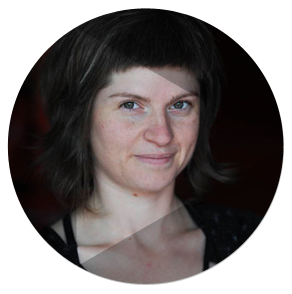
Vittoria Fiumi
Vittoria Fiumi, film director, studied visual anthropology at the University of Manchester (UK). Vittoria has specialised in the creation of films that explore the relation between nature and culture with a creative and innovative approach, combining experimental elements with those of documentary and fiction genres. She has produced and directed two short documentaries: Peaceful Place (Human Rights FF, Bologna, Los Angeles, Sarajevo 2006) and All of a sudden it was dark (IDFA doc for Sale 2009, Doc under 30). Her last film Nermina’s World was selected for the 2014 competition Visions du Rèel in Nyon. The film entered the finalist shortlist for the Solinas award, a prize for screenwriters, and was awarded the Corso Salani Prize (for best work in progress) at the Trieste Film Festival. Produced by Fiumi Film and Tama Film (Flavia Oertwig), it is a Swiss, German and Italian co-production with the support of the Cineteca di Bologna, Film für Eine Welt and Film Commission Baden-Württemberg. In 2014 Vittoria Fiumi was selected by the Filmmaker Academy of the Locarno Film Festival as emerging director. She was awarded the prestigious Nipkow scholarship for her new project 3TimesMe. She lives and works between Switzerland and Italy.

Zilda Marcia Grícoli Iokoi
Zilda has a master’s degree and PhD in Social History from the University of São Paulo. She is a professor in the Department of History at the Faculty of Philosophy, Arts and Human Sciences at the University of São Paulo, in the field of History of Independent Brazil, acting mainly along the research lines of History of Relations and Social Movements, on the themes of education, farmers’ struggles, public policy, contemporary immigration, humanities, duties and other legitimacies. She currently coordinates the Diversitas Studies Center of Diversity, Conflict and Intolerance and the Graduate Program Humanities, Rights and Other legitimacies.